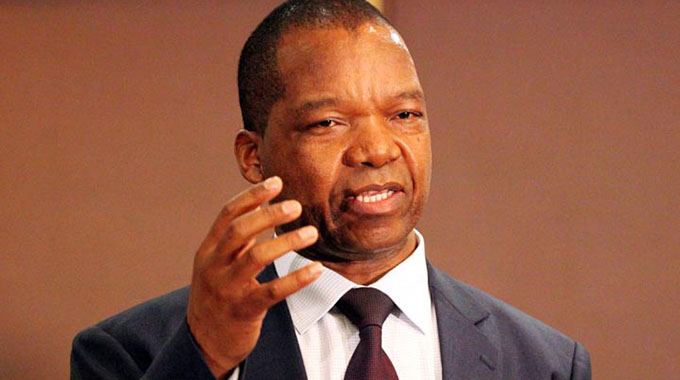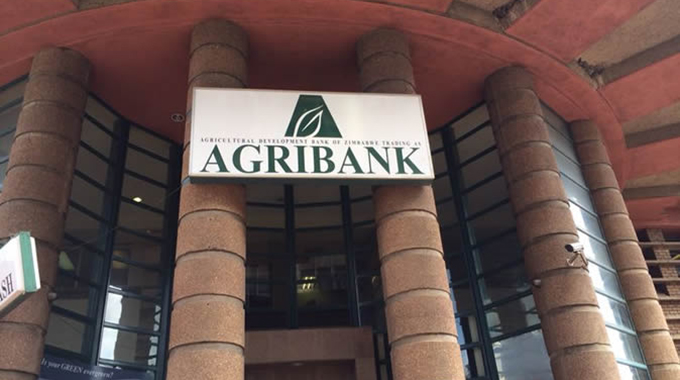Zim seeks $500m from Afreximbank

Golden Sibanda Senior Business Reporter
THE Reserve Bank of Zimbabwe (RBZ) is negotiating a $500 million funding package with the African Export and Import Bank (Afreximbank), as part of efforts to resolve the foreign currency shortages blighting the economy. Afreximbank has been Zimbabwe’s biggest benefactor since the turn of the century, at a time when most global lenders had stopped extending fresh lines of credit to the southern African nation, either at the behest of Western countries that were livid over the country’s land redistribution programme or over defaulting on earlier loans.
RBZ governor Dr John Mangudya told The Herald in an interview last week that the central bank was currently in the market, scouting for fresh lines of credit, and this included discussions already underway with Afreximbank for a $500 million kitty.
The funding is required to meet critical obligations such as external payments for raw materials or key industrial equipment and machinery, as well as fuel and medicines among others.
At one point, September 2017 specifically, the country’s external payments backlog stood at nearly $600 million, as the central bank struggled to cover all external payment demands.
Demand for foreign currency continues to exceed inflows, even as exports grew by 36 percent last year to 3,8 billion, given that the country’s import bill, at $5,5 billion, remains too high.
Apart from interventions towards alleviating Zimbabwe’s private sector funding challenges, which is being done by institutions such as AfDB, the RBZ is also in the market either scouting for lines of credit or already negotiating fresh support from institutions that have previously bailed out the country, especially, the Afreximbank.
This comes after a high-powered delegation from the AfDB, which has extensive expertise in the areas of industrial manufacturing, agriculture, energy and financial services, visited the country last week to explore private sector’s funding needs.
The bank last year said it would mobilise $8 billion to fund the needs of Africa’s private firms.
AfDB is one of multilateral institutions, including International Monetary Fund (IMF) and World Bank Group, which have not been lending to Zimbabwe over “arrears”.
“We are also in the market, as you are aware; to continuously look for lines of credit to supplement our export (receipts) from gold, tobacco or from wherever so that at the end of the day the economy can continue to function,” Dr Mangudya said.
“And three, we are also promoting diaspora remittances so that they continue bringing in money.
“Of course, we are also making sure that we continue to export and that is why we continue to give incentives (to exporters),” Dr Mangudya said.
“We are finalising our loans commitments; Afreximbank has said they will give us $500 million, which we are still working on. We are also still working on other facilities, the PTA Bank is also assisting us,” Dr Mangudya said. Afreximbank, which has stood by Zimbabwe in greatest period of need, last year gave the country $1,5 billion.
Of that amount, $500 million was meant to stabilise the country’s depleted nostro balances, to enable Zimbabwean companies to meet their external payments obligations while the balance was to ring fence foreign investments. Most facilities extended by Afreximbank, where Dr Mangudya once worked, are given at concessionary rates.
The $1 billion from Afreximbank was a guarantee meant to ring fence foreign portfolio investments, as President Mnangagwa’s administration, since taking over in November last year, has prioritised luring back foreign direct investment to rebuild the economy and make up for nearly four decades of economic instability and meltdown.
Dr Mangudya said that there was growing mismatch between the demand for foreign currency by the private sector and the amount of resources available on the domestic market. The RBZ chief said this was a sign of a growing economy.
“What is the reason for foreign currency shortages? The rate at which this economy is expanding is faster than the rate at which we are creating foreign currency to meet that demand. I give an example of packaging industry; go to Nampak, right now they are producing at 100 percent of capacity.
“Check financials coming from all those who have published; you saw Delta, OK Zimbabwe, Proplastics, what were they saying; they are saying their bottom lines have improved.
“Why? This is because aggregate demand has improved.”
Increased activity in the economy on the back of increasing aggregate demand, Dr Mangudya said, was stemming from increased Government expenditure and loans banks that were issuing. Hitherto, the RBZ governor has said earnings from tobacco have improved disposable incomes in the country.
Dr Mangudya said improved activity in the economy had given rise to higher demand for other commodities such as fuel, where consumption of the commodity went up by 25 percent, which have spawned serious congestion on the country’s roads.










Comments